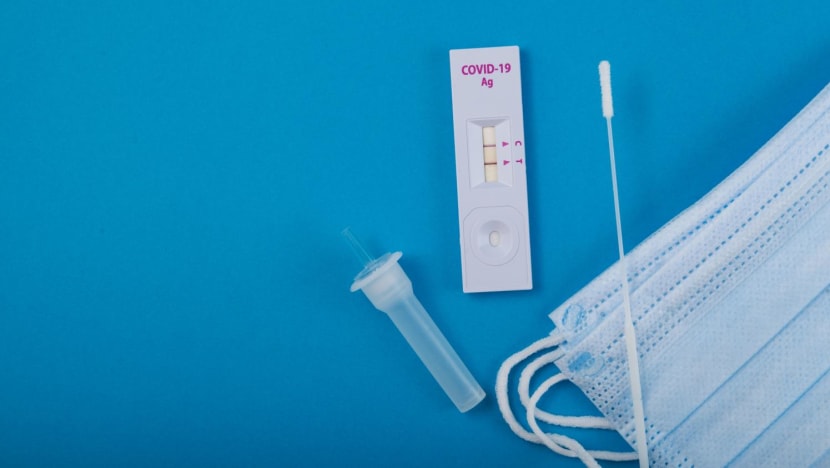Singapore retailers see rise in demand for masks, ART kits after increase in COVID-19 cases
While sales of ART kits and masks have increased in recent weeks, stocks are sufficient and prices have been stable, retailers told CNA.

File photo of an antigen rapid test (ART) kit and masks. (Photo: iStock/Aleksei Bezrukov)
SINGAPORE: Retailers are seeing an increase in demand for masks and antigen rapid test (ART) kits amid a surge in COVID-19 cases in Singapore.
Despite the rise in sales, however, stocks of both masks and ART kits remain sufficient while their prices have been stable, retailers told CNA.
"There has been an increase in demand for ART kits by about 30 per cent over the past three weeks while prices have held stable," a FairPrice Group spokesperson said on Monday (Apr 17).
"FairPrice Group will continue to closely monitor consumer demand and ensure that we remain prepared to serve the needs of the community," the spokesperson added.
Watsons noted a rise in demand for masks and ART kits, but the retailer assured customers that these items are readily available.
"Watsons has been monitoring closely on demand and distribution of COVID-related items such as masks and test kits to ensure constant supply and healthy stock holding," a Watsons spokesperson said on Tuesday.
"While we are seeing some spike in sales for both masks and test kits, our stocks remained healthy, and we have no intent for any price change."
DFI Retail, the parent company of 7-Eleven, Cold Storage, Giant and Guardian, also noted a similar trend. It added that apart from stocks of masks and ART kits, supplies of medications to treat symptoms of COVID-19 remain adequate as well.
"Mask sales have increased slightly in the last fortnight," a spokesperson said.
"We would like to assure customers that we have sufficient stocks of masks, ART test kits (and) fever, cough and cold medication, and that we will keep prices affordable for our customers as well."
Singapore has been in the middle of a COVID-19 wave over the past month, with infections rising from about 1,500 a day in early March to about 2,300 a day in early April. The latter figure is, however, less than the average of about 4,000 daily cases reported between Mar 26 and Apr 1.
Last Friday, Health Minister Ong Ye Kung said that about 30 per cent of cases in the current wave have been reinfections, higher than the proportion of 20 per cent to 25 per cent during the previous wave.
While the average daily number of hospitalised COVID-19 patients has gone up, from 80 in early March to nearly 220 in early April, Mr Ong said this is still "far below" the figure during the peak of the pandemic and much lower than the number of patients hospitalised for non-COVID infections.
Fewer than 10 COVID-19 patients have been in intensive care units at any one time over the past month, he added.
Mr Ong said that Singapore continues to conduct genetic sequencing of viral samples, noting that there are now multiple coronavirus variants circulating, including XBB.1.16.
"Of particular interest now is XBB.1.16. It is only of particular interest because someone gave it a sexy name called Arcturus," he said.
"But really of all the variant strains now, there is really not a single one that we notice is particularly dominant. There is no evidence showing that any one of them causes more severe illness."



















